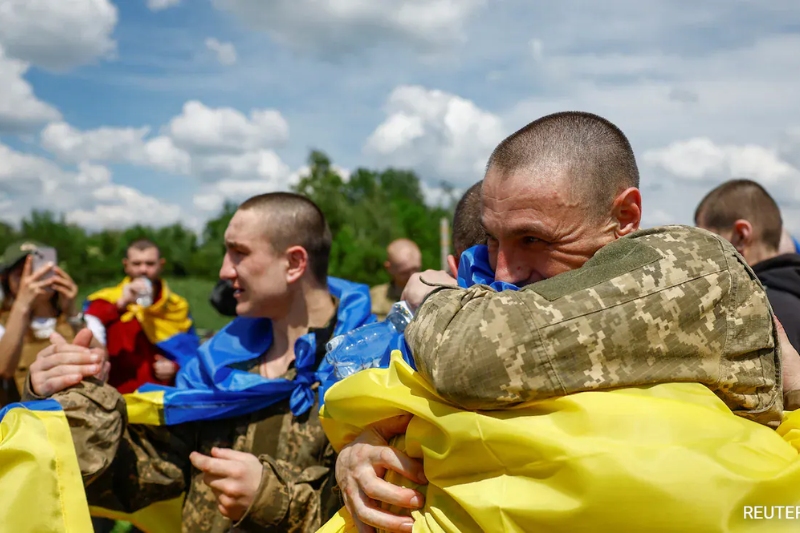Russia and Ukraine have effectively traded 150 prisoners of war (POWs) with the assistance of United Arab Emirates (UAE) mediators in a major step towards peace among the continuous bloodshed. Announced by Russia’s Defense Ministry on Friday, this event marks the first such interaction following months of halted negotiations between the two warring countries.
The Russian Defense Ministry claims that 75 Russian servicemen under critical risk while in Ukrainian captivity have been released home. Concurrent with this is the repatriation of 75 Ukrainian troops back to their country. The statement made by the Ministry underlined the humanitarian mediation part the UAE performs in enabling this flow.
The statement said: “The United Arab Emirates provided humanitarian mediation during the return of Russian servicemen from captivity.” This mediation initiative emphasizes the UAE’s continuous responsibility in trying to close gaps between the opposing groups and minimize the war-related humanitarian disasters.
This conversation followed Russia’s human rights commissioner’s allegation of Ukrainian authorities hindering initiatives for the release of further imprisoned servicemen. The charge had escalated the already tense environment, hence the successful swap was a significant development.
Keep Reading
Emphasizing the relevance of this development for Ukraine, Ukrainian President Volodymyr Zelensky acknowledged the exchange in a social media post. “Today we have an important result: 75 more of our people have returned to Ukraine.” Zelensky said. He sent poignant pictures of returning Ukrainian servicemen draped in national flags being welcomed by their relieved families.
The backdrop of this conversation is a protracted and bloody battle marked by many abortive diplomatic and negotiating endeavors. Beginning in 2014 after Russia’s takeover of Crimea and intensifying in February 2022 with Russia’s full-scale invasion of Ukraine, the war has resulted in a catastrophic humanitarian disaster with thousands of troops and civilians dead as well as millions more displaced.
Particularly important in this context is the UAE’s mediating function. UAE officials have broken off contacts between Ukrainian and Russian military not once but rather repeatedly. The UAE’s strategic diplomatic posture and readiness to participate in humanitarian activities were shown by earlier this year facilitating multiple POW swaps. The UAE’s participation in these negotiations emphasizes the need of impartial third parties in guiding and carrying out agreements between hostile countries.
This effective prisoner swap might open the path for more talks and confidence-building actions between Russia and Ukraine. Still, the road toward a long-lasting peace is paved with difficulties. Both sides of the fight suffer great losses of material goods and sufferings, hence the conflict keeps raging on several fronts.
Hoping for additional humanitarian actions and a probable decrease in hostilities, the world community keeps close eye on these events. The UAE’s effective mediation could inspire other impartial parties to intervene and provide their help in next negotiations.
One cannot stress the value of such interactions while the battle grinds on. For the families of those taken, they offer a ray of hope as well as little but important gestures toward communication and maybe peace.
For both countries, the returning POWs have great emotional and symbolic meaning. For the troops, it signifies a homecoming to their loved ones and a relief from the terrible circumstances of captivity. These interactions provide rare opportunities for cooperation among governments and people of Russia and Ukraine against the background of continuous conflict and animosity.

